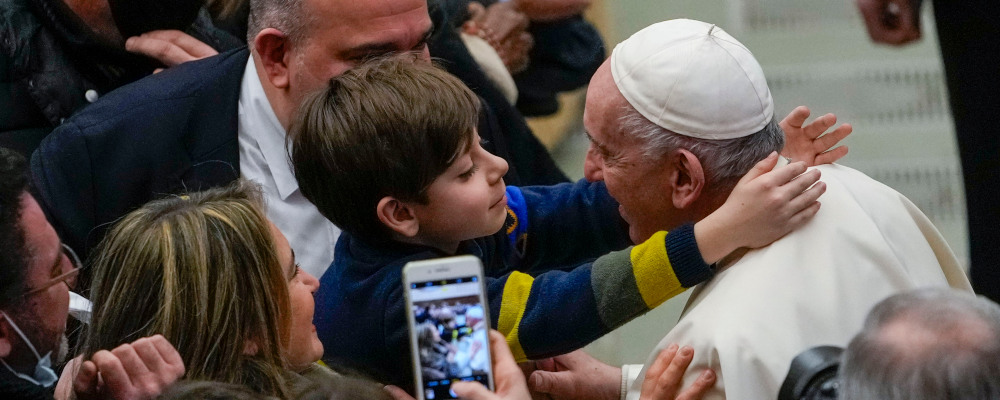Canada’s Conservatives are a troubled tribe. The Conservative Party has always been a family of factions, sometimes united more by rejection of Liberals than any mutual affection. But the pandemic has widened their fault lines. We’ve seen this in the Conservative parliamentary party, and among small-c conservatives across Canada: intense disagreements about vaccine mandates, public health restrictions, the trucker convoy… and sadly, in some cases, conspiracism surrounding vaccination itself.
These troubles have existed as long as the party has—the pandemic has simply given them new expression. Social conservatives who see the CPC taking their money and votes with one hand, and with the other hand, rejecting any hint of social conservatism in its party platform or broader policy agenda. The party’s more centrist elements, frustrated by the CPC’s populist instincts. The usual divides on moral and social issues, urban and rural perspectives, the cultural gulf between English Canadian and Canadien—the list could go on.
The Tories’ troubles should trouble you, whether you vote for them or not. Democracy thrives only with real choices, and this party is the sole governing alternative to Canada’s Liberals. A healthy, humane, and electorally competitive Conservative Party is critical for a healthy, humane, electorally competitive Canadian democracy.
Those are the stakes as the Conservatives once again arrive at a fork in the road with the departure of Erin O’Toole. In a leader-centric political culture like ours, a party’s choice of leader is more than a choice of personalities. It’s a choice of culture, ideas, and, critically, orientation to the wider country.
When thinking about the leadership Canadians deserve from their Conservative Party, my Catholic eyes turn to Pope Francis, the head of the Roman Catholic Church. Though an Argentine religious leader might be an unorthodox model for a secular Canadian political party, the Conservatives are in desperate need of new—and unorthodox—inspiration. Here are four lessons they might learn from him.
- Embrace our polyhedral reality.
Pope Francis speaks and writes of “political love.” Love! It’s not a word we are used to hearing in politics. But in describing how politics can be a space for real love of neighbour, Pope Francis writes that “Government leaders should be the first to make the sacrifices that foster encounter and to seek convergence on at least some issues… Through sacrifice and patience, they can help to create a beautiful polyhedral reality in which everyone has a place.”
A polyhedron is a surprising but perfect image for democracy. Polyhedrons have consistent surfaces alongside jagged points—sides that are next-door neighbours, and sides that can’t even see each other. Sounds like Canada, doesn’t it?
We’re home to families that have been here for hundreds of years, and families who have been here for a hundred days. More than two hundred languages are spoken among those who live here—three times as many First Nations communities live here as well. We all call ourselves Canadian, but research suggests only Ontarians call themselves Canadians before calling themselves Ontarians. For the rest, identity is province-first.
Any party that aspires to govern this country must embrace, as Pope Francis suggests, its polyhedral reality. The Conservative Party needs to learn how to seek convergence among a dominion of a thousand nations.
This means not just proselytizing. The Conservatives’ problem here isn’t a simple matter of ineffective tactical outreach. It’s about fostering a real desire to integrate the fullness of one’s country into the movement. Which of this country’s many ideational, cultural, and political wellsprings can be tapped into, brought inside the organic whole of conservatism, so that Tory blue is mixed more integrally with Canadian red and white?
- Opposition must always walk with proposition.
On its most fractious and factionally-divided days, the Conservative Party seems more united by a shared rejection of the Liberal Party than any other core principle. One of the dangers of being the opposition is to always be seen as opposing. Here again, Pope Francis offers a useful example.
Catholics love “both/and” truths—seemingly contradictory concepts that are co-relational complements. In this spirit, opposition is bereft without proposition. Pope Francis finds much to condemn in the world these days, often deriding what he calls throwaway culture—an attitude that everything is disposable, from material goods to human life. But his criticism is married to vision. He offers concrete alternatives reflecting his own proposal. He refuses to disconnect the environmental crisis from the human crisis. He welcomes refugees, encourages economic development—saying that we must “prioritize the goal of access to steady employment for everyone”—all while advancing the goal of ecological sustainability.
The Conservative Party must radically commit itself to proposition. It must commit to this not simply during elections, but between them. The Liberal Party benefits from thick Canadian intellectual and cultural roots—an array of academic disciplines, think tanks, advocacy organizations, cultural communities, lobby groups, and more—from which it can draw ideational insight. The Conservatives must nourish their own sources. More than that, the CPC can’t start from scratch. It must begin integrating the many idea-generators outside the Liberal policy ecosystem, even where those generators might be unorthodox sources.
- Be confident enough to engage in real dialogue.
Unsurprisingly, the Pope of the Catholic Church thinks often about how we can bring more people into the Catholic Church. Encouraging us to share our faith, Pope Francis writes that “If we start without confidence, we have already lost half the battle and we bury our talents.”
The Pope lives this. The Pope is confident in encounters with Christian and non-Christian alike because he knows in his soul he has something truthful, good, and beautiful to share.
I don’t always sense that confidence from the Conservative Party. When I worked in Conservative politics, I’d hear the phrase “sword and shield issues.” The party was certain it had a winning message on sword issues, like job creation or public safety. Shield issues were those the party hated talking about, perceiving its brand on these topics as weak—like climate change or health care.
This attitude is a symptom of political sterility, like playing Chess but refusing to move your queen. Why would you ever ask your fellow Canadians for permission to govern and shape policy across a vast swath of public issues, if you think you can only dialogue around a niche set of topics?
When Pope Francis promulgated Laudato si’, his widely acclaimed encyclical on climate change, many claimed the Church was saying something new. But Pope Francis spends part of the encyclical pointing out how these teachings are, in fact, not new—rather, a fresh application of long-standing Catholic thought on environmental stewardship which stretched back decades.
The Conservative Party can’t claim several millennia of tradition. But it can claim timeless principles—ideas about subsidiarity, family, community, and moral coherence which have relevance in every era. I wish, like Pope Francis, the Conservative Party could dialogue with confidence in those ideas. A political party fearful of dialogue’s give-and-take is one that will inevitably shrink, as fewer find a home in it or see their priorities reflected in it.
- Be merciful and see the good in everyone.
The Pope’s best trait is his merciful stance towards others. Through his presence, he emanates a genuine affection for those he meets. This warmth is so powerful, it melts the hearts of even the staunchest anti-Catholics.
There’s a beauty to the way Pope Francis lives that instantly attracts. He exudes joy and peace. He doesn’t reduce anything to moralism. He loves first and expresses dogma after. This isn’t simple charisma. It’s an affection for people that can’t be concealed by anything.
Beauty, attraction, joy, affection… when Canadians think of the Conservative Party, this is not what they see. Consider a 2019 Abacus Data study that asked respondents to describe the major political parties. Among all respondents, the top three words for the Tories were old, traditional, and closed. Others included uncaring, arrogant, selfish, mean, and dishonest. The most common word for the Liberals? Open.
This is an existential problem that transcends who the leader is. Less and less does the CPC represent the fullness of Canada, in all its diverse expressions. Instead, the party is a narrowing coalition. It is older, more western, less broadly national, and disconnected from the majority urban experience. New generations are rejecting the party out of hand.
The next Conservative leader faces an extraordinary question: under these darkening circumstances, does a Conservative government even remain possible? Will it embrace Canada in all its rich complexity? Will it find fresh proposals and engage in new, unexpected dialogues in novel spaces? Will it follow better angels, or continue feeding the fallen ones that lead Canadians to view it as cruel and closed?
The leader who will answer these questions won’t be Pope Francis. They will be a sinner, not a saint. But like all sinners, we can look to saints for our examples. Pope Francis shows a kind of leadership that appeals to all, even amid disagreement, even outside the Catholic tent. As the Conservative Party finds itself surrounded by disagreement—with more outside its tent than in it—that’s exactly the kind of leadership it needs to model.
Recommended for You

Theo Argitis: Election 2025 is the most consequential campaign since 1984

Wodek Szemberg: Understanding the NDP’s identity crisis

John Ibbitson: Poilievre’s critics are dead wrong. We do, in fact, need to talk about family fertility

The Week in Polling: Conservative voters may be the most committed; Nearly 70 percent of Canadians want Carney to release his financials before election; Conservatives winning over voters who didn’t vote in last election



